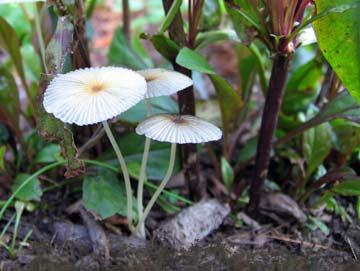Not only is compost good for your plants and improves the tilth and health of your soil, but using it is very good for the environment as well.
Bear Path Compost is among a growing number of commercial compost operations that utilize food waste from restaurants, supermarkets, public and private schools, colleges and universities and other institutions as a portion of the raw materials they process. Bear Path Compost currently composts source separated food waste from the Whately transfer station and the Whately Elementary School. This food waste includes: kitchen prep waste, plate scraps, spoiled food as well as paper products such as napkins and pizza boxes.
In the fall of 2015 Bear Path Compost began utilizing 15% to 20% of short paper fiber (SPF) in its compost recipe. SPF is a waste product of the recycled paper industry. After paper is recycled 5 or 6 times, the fibers become shorter and shorter resulting in a waste product that has been traditionally landfilled. The SPF utilized at Bear Path Compost is approved by the Massachusetts DEP for use at certified compost sites. In 2016 BPC used 698 cubic yards of short paper fiber as a feedstock for its compost.
 Historically food waste, short paper fiber and other carbon materials (including leaves and yardwaste) have been disposed of in landfills creating environmental problems including one that particularly impacts climate change and global warming. Anaerobic bacteria (the same organisms in septic tanks) are the microbes that decompose carbon wastes in an oxygen deprived environment (like compacted landfills). These creatures are effective decomposers, but create significant amounts of methane gas as a byproduct of their metabolic activity. What does this mean? From a climate change perspective, a given amount of methane gas is 23 times more threatening as a greenhouse gas as carbon dioxide. So if carbon waste materials can be kept out of a landfill by composting, our environment benefits.
Historically food waste, short paper fiber and other carbon materials (including leaves and yardwaste) have been disposed of in landfills creating environmental problems including one that particularly impacts climate change and global warming. Anaerobic bacteria (the same organisms in septic tanks) are the microbes that decompose carbon wastes in an oxygen deprived environment (like compacted landfills). These creatures are effective decomposers, but create significant amounts of methane gas as a byproduct of their metabolic activity. What does this mean? From a climate change perspective, a given amount of methane gas is 23 times more threatening as a greenhouse gas as carbon dioxide. So if carbon waste materials can be kept out of a landfill by composting, our environment benefits.
OTHER ENVIRONMENTAL BENEFITS OF COMPOST USE:
![]() Compost is excellent for improving degraded soils and making them useful again as a growing medium. Over the years, Bear Path Compost has consistently provided compost for farms and backyard gardens where abused soils were converted to high quality vegetable and ornamental plant production.
Compost is excellent for improving degraded soils and making them useful again as a growing medium. Over the years, Bear Path Compost has consistently provided compost for farms and backyard gardens where abused soils were converted to high quality vegetable and ornamental plant production.
![]()
![]() Compost is a renewable, sustainable product unlike most commercial fertilizers.
Compost is a renewable, sustainable product unlike most commercial fertilizers.
![]() Since compost has a good balance of major and micro nutrients it can effectively replace significant quantities of commercial NPK fertilizer which is fossil fuel based.
Since compost has a good balance of major and micro nutrients it can effectively replace significant quantities of commercial NPK fertilizer which is fossil fuel based.
![]()
![]() Incorporating compost into soil effectively locks up carbon in the form of organic matter and ultimately humus which can last for many years or even decades. This is just another very positive way of offsetting greenhouse gas emissions from the combustion of fossil fuels.
Incorporating compost into soil effectively locks up carbon in the form of organic matter and ultimately humus which can last for many years or even decades. This is just another very positive way of offsetting greenhouse gas emissions from the combustion of fossil fuels.
![]() Unlike commercial NPK fertilizers, the nitrogen in compost is in a slow release form and will have minimal negative impact upon surface or ground water supplies.
Unlike commercial NPK fertilizers, the nitrogen in compost is in a slow release form and will have minimal negative impact upon surface or ground water supplies. 


